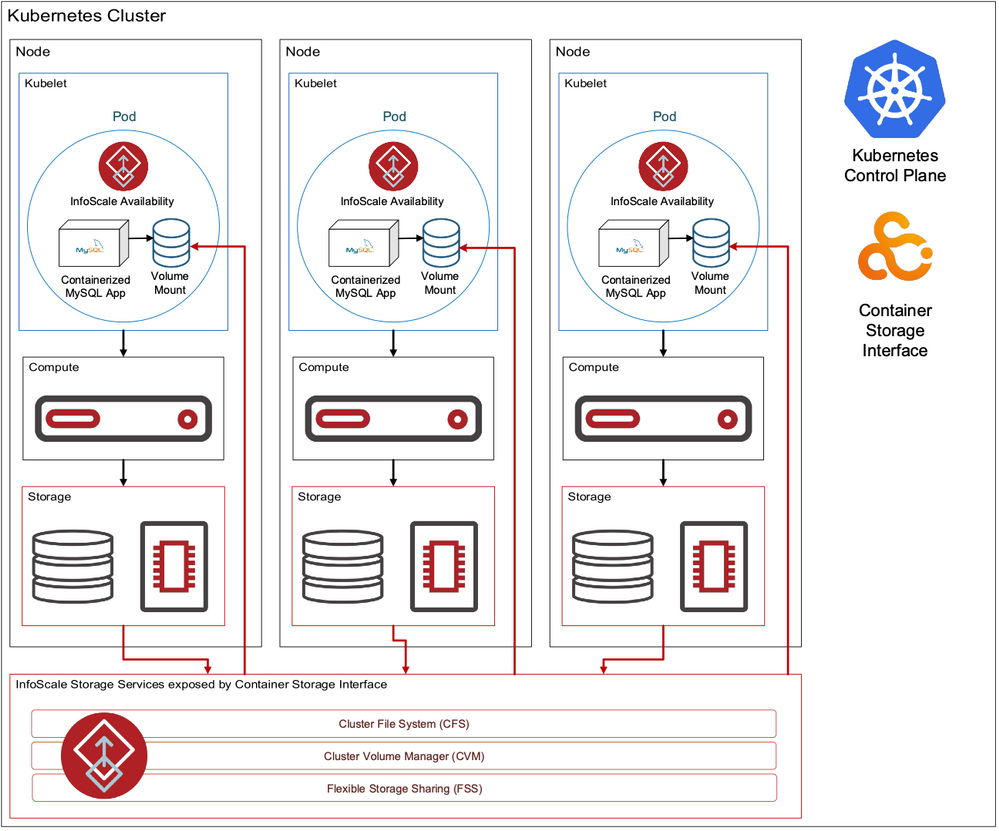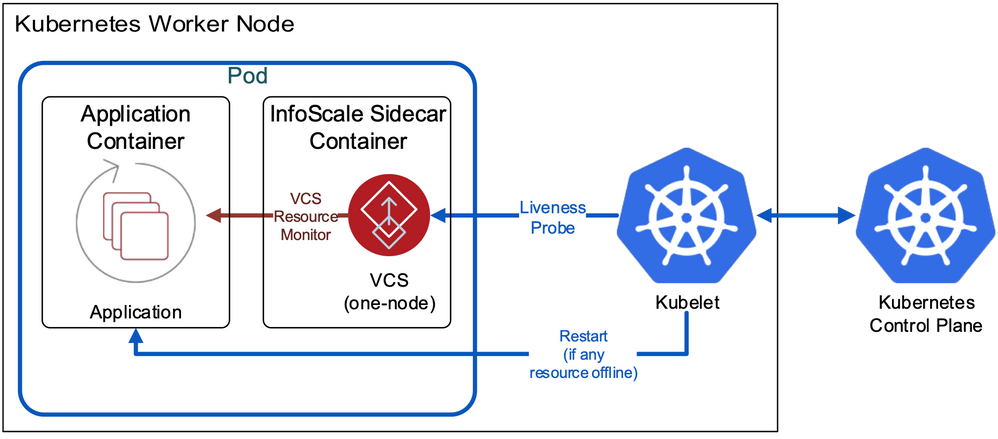Create Enterprise-Ready Container Environments With Veritas InfoScale

Are you running applications in containers? Are you considering using containers to run new IT services? A common challenge you might be facing is being able to find a reliable way to provide the advanced storage and availability management features your applications need in a containerized environment. This is why you need InfoScale!
Veritas InfoScale is a software-defined optimization solution for applications that abstracts applications from their underlying hardware and software resources. That abstraction enables enterprise-grade optimizations around business continuity, performance, and infrastructure agility across physical, virtual, and cloud environments.
With InfoScale, you can confidently run your stateful applications in containerized environments with the availability and data management features they need to meet their SLAs and provide a smooth experience for your end-users.
INFOSCALE FOR CONTAINERS
InfoScale’s Container Storage Interface (CSI) plug-in and Veritas Cluster Server (VCS) high availability agents have been designed to integrate seamlessly with Kubernetes to help make your container environment ‘enterprise-ready.’ InfoScale provides advanced functionality for containers and Kubernetes needed by enterprise applications:
- Application availability – InfoScale manages high availability and recovery automation for your applications by monitoring critical application processes and resources. InfoScale VCS agents can integrate with Kubernetes liveness probes to restart the container in the event of a resource failure. If an application process fails, it can be restarted without restarting the entire container. InfoScale manages this process for containerized applications using the same approach as it uses for applications running on traditional virtualized or physical infrastructure, providing a familiar user experience.
- Advanced storage management – With the InfoScale Container Storage Interface (CSI) plug-in, you can provide high-performance shared storage for your Kubernetes clusters using fast storage directly attached to the Kubernetes cluster nodes. This works using InfoScale’s advanced Cluster File System (CFS) with Flexible Storage Sharing (FSS). Take a look at figure 1 to see what this looks like.
- Application migration – move non-containerized applications into a container environment by copying your application data into InfoScale volumes within the Kubernetes cluster and use the InfoScale CSI plug-in to present the data to your applications running in containers.

Kubernetes uses the InfoScale CSI plug-in to interface with the InfoScale storage volumes on the cluster nodes. This allows Kubernetes to mount persistent enterprise-grade storage in the application pods it’s managing, which can then be used by stateful applications that can be easily scaled to run across multiple containers. Figure 2 describes the process flow for mounting the storage in the application pods.

MAKING KUBERNETES ENTERPRISE READY
While Kubernetes provides excellent configuration management and orchestration for clustered container environments, it does not have visibility into the applications running inside the containers it’s managing. This leaves your containerized applications exposed to potential downtime risks such as hung processes and inaccessible storage that could go undetected. InfoScale ensures that issues affecting application availability are communicated to Kubernetes so it can take the necessary action to keep your applications online.
There are several key benefits to using InfoScale’s CSI plug-in and availability agents with Kubernetes:
- High-performance parallel storage that provides better performance and reliability than NFS
- Optimized resource utilization with the ability to use either existing SAN storage or InfoScale’s advanced FSS option that provides better performance than SAN at a reduced cost
- Support for advanced application data and infrastructure monitoring with VCS high availability agents that provide in-depth monitoring for applications running in containers
- Integrated I/O fencing and arbitration to protect against data corruption and provide fast recovery in the event of a node failure
InfoScale’s VCS high availability application agents have multiple configurable attributes and can monitor applications running in containers in different ways depending on the type of application:
- Using a side-car container: this option has no effect on the application container and keeps administration simple by allowing you to use vendor-provided application container images. This is shown in figure 3.
- Installing the VCS agent inside the containers: this option provides a more traditional user experience and allows InfoScale to restart application processes without restarting the entire container. The VCS agent can also be included in the application container image to simplify operations and improve resource utilization

SUMMARY
InfoScale's industry-leading data management and availability technology provides the functionality and confidence you need to run your enterprise applications in containers. InfoScale’s high-availability VCS agents are custom designed to provide maximum uptime and flexibility for your containerized applications. InfoScale is the ideal solution for managing your transition to a containerized environment and running your enterprise applications in containers with the storage and monitoring they need to be highly available.
For more information on InfoScale, please check out the following whitepaper: Veritas InfoScale: Managing Mission Critical Applications in a Software-defined Data Center.
You can also find additional InfoScale information and resources in the InfoScale technical library.